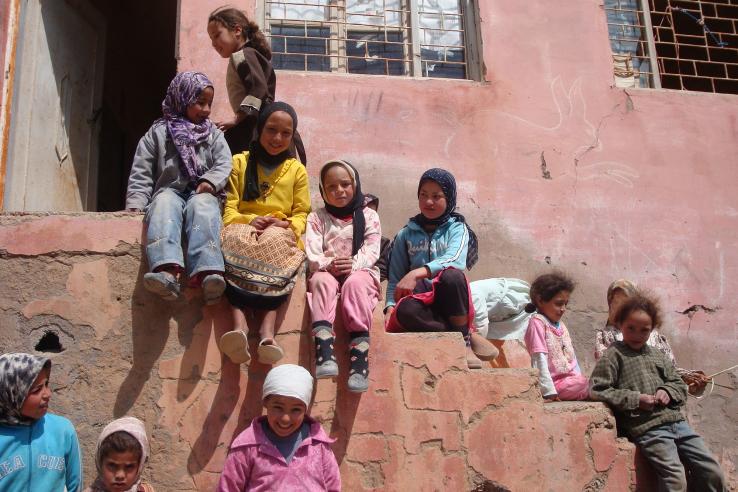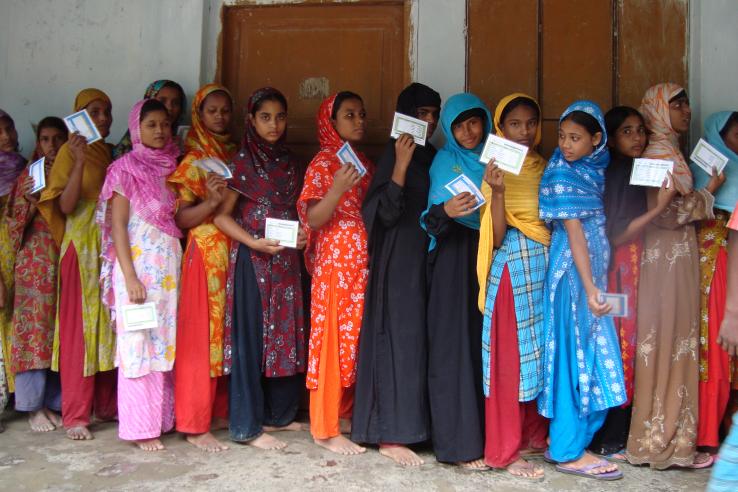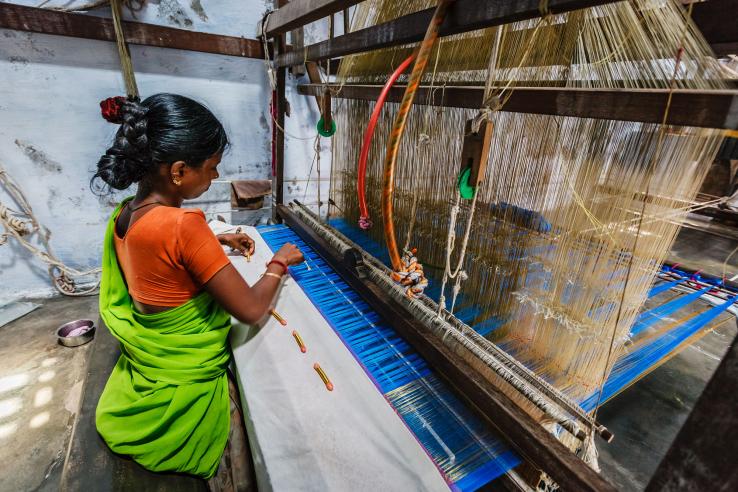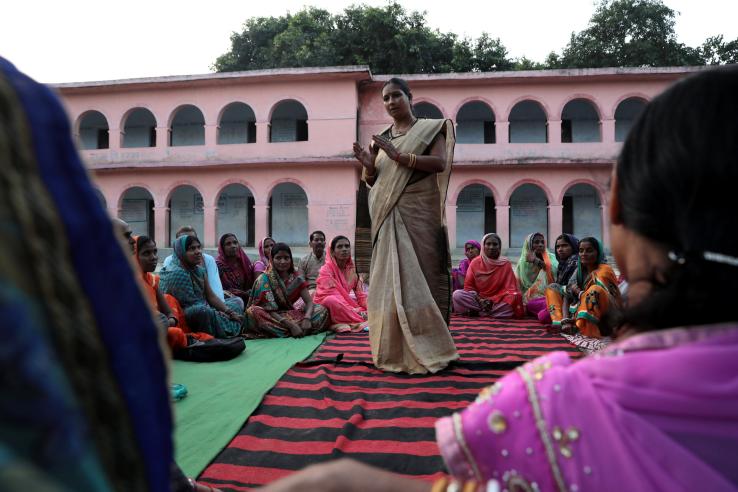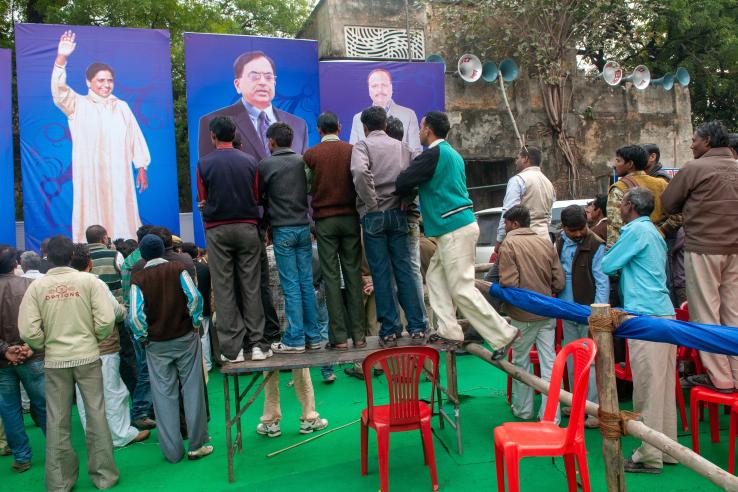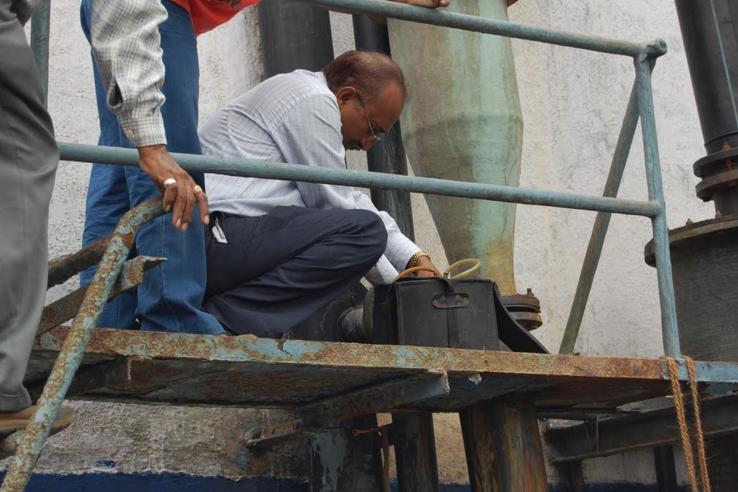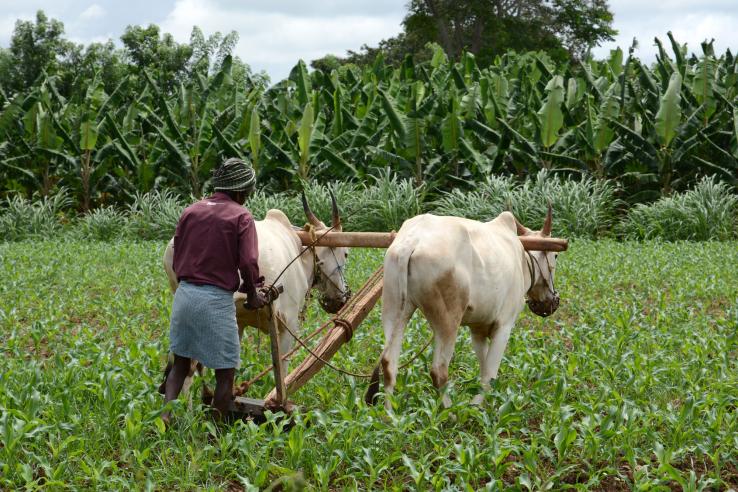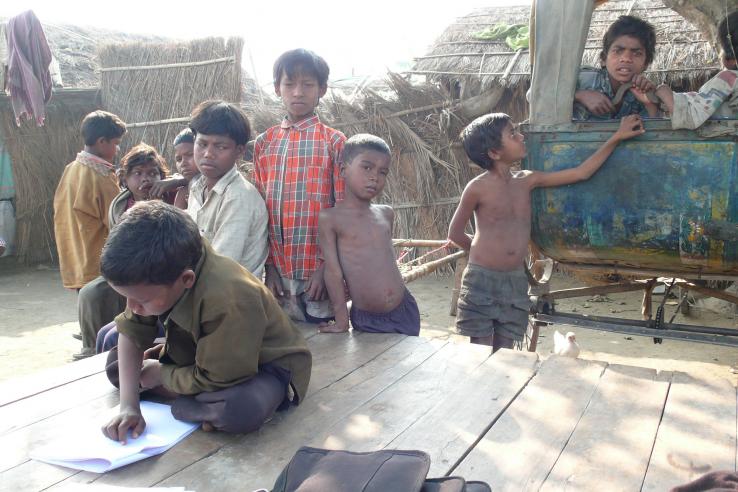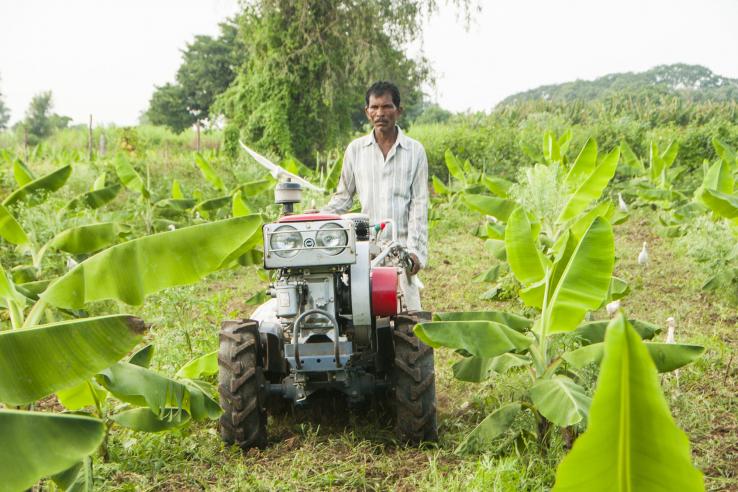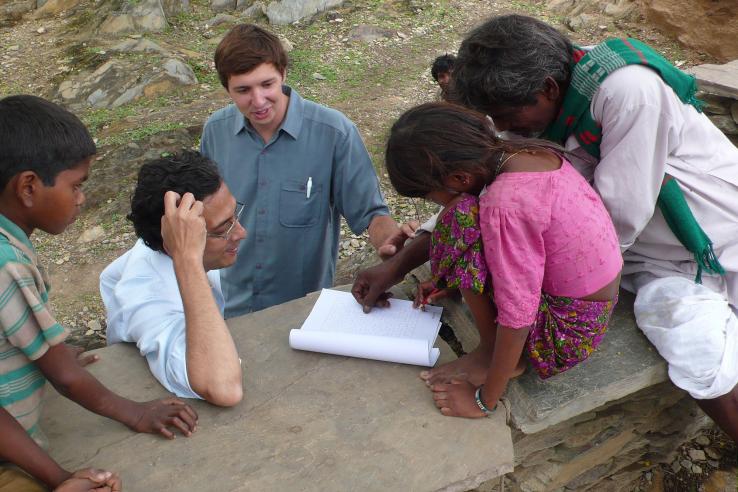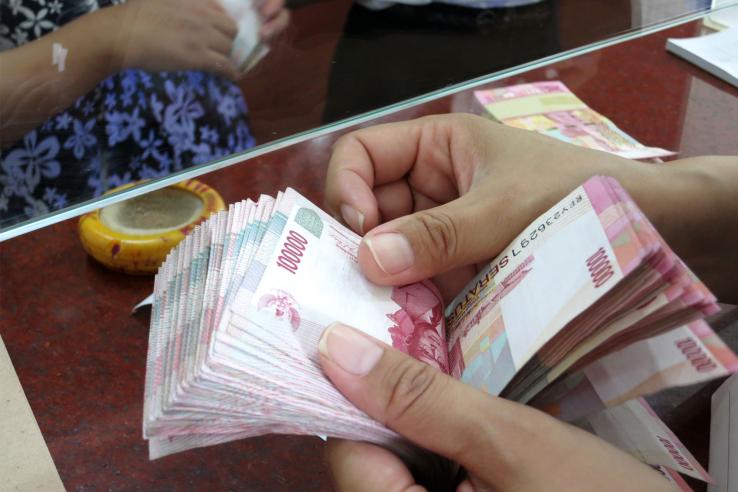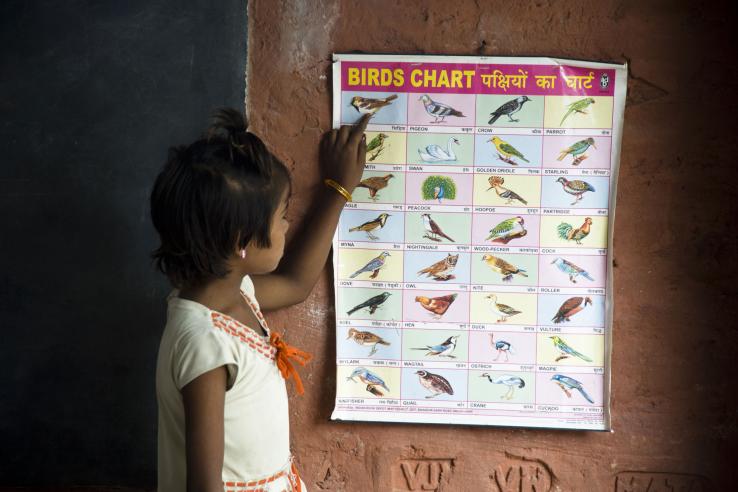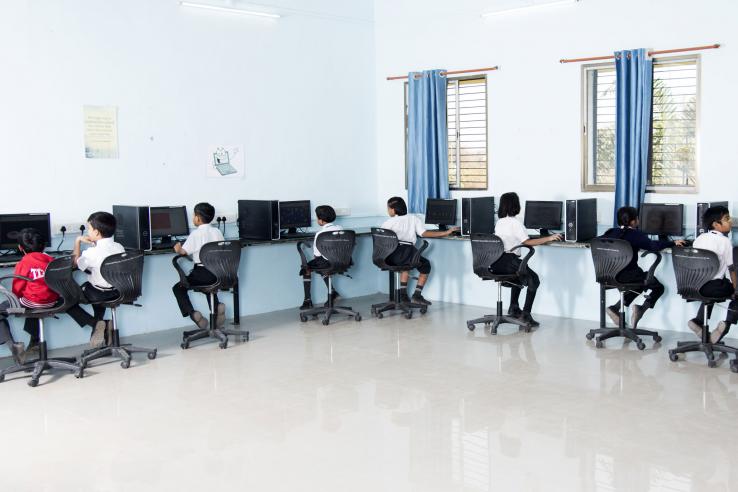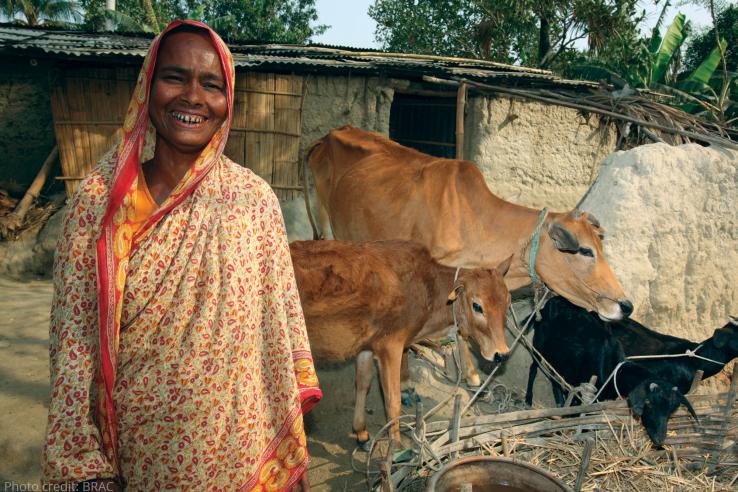Displaying 3136 - 3150 of 8334
Evaluation
Researchers conducted a randomized evaluation of a cash transfer program in Morocco to estimate the impact on attendance and enrollment of a “labeled cash transfer” (LCT): a small cash transfer made to parents of school-aged children in poor rural communities, not conditional on school attendance but explicitly labeled as an education support program.
Person
María Paz joined J-PAL in 2009 and is currently working on an education project.
Evaluation
Child marriage remains prevalent in many countries despite laws prohibiting the practice, leading to negative health and education outcomes for young women and their children. Researchers evaluated the impacts of an incentive program and an adolescent empowerment program on child marriage, teenage childbearing, and level of education in rural Bangladesh. Financial incentives conditional on delayed marriage reduced child marriage and teenage childbearing, and increased girls’ level of education. The empowerment program, on the other hand, did not succeed in delaying marriage.
Evaluation
Researchers tested two features of these contracts, repayment frequency and the time of the first repayment, to determine if characteristics of the loan contract affect borrowers’ repayment behavior and the types of investments they make. They found that less frequent repayments did not increase defaults. A two-month grace period before beginning repayment raised the default rate slightly but allowed entrepreneurs to invest more in their businesses, resulting in long term economic gains.
Evaluation
Researchers offered two days of business training and assistance in identifying a medium-term financial goal to a random sample of women of different castes and religions in India. A random sub-sample of women were invited to attend the training with a friend. Women trained with a friend doubled their demand for loans and expanded their business activity, resulting in higher household income. This impact was stronger among women from religious or caste groups with social norms that restrict female mobility.
Evaluation
In order to examine how voter preferences vary with information about the relevance of ethnicity and politician quality, researchers randomly assigned polling stations during the 2007 Uttar Pradesh elections to two information campaigns, one calling for people not to vote for a party simply for representing their caste and one calling them not to vote for corrupt candidates. The caste campaign not only reduced the likelihood that an individual would vote for a party representing their caste but also increased voter turnout and reduced the voter share of candidates facing heinous criminal charges.
Evaluation
Researchers evaluated the impact of a reform to the pollution audit system in India, making auditors more independent, on the truthfulness of their reporting and the behavior of the firms they audited. Increasing their independence made them more likely to report the truth about industrial plants’ pollution levels.
Evaluation
Researchers conducted a randomized evaluation to test how demand for weather insurance responded to different marketing schemes and price discounts. They found that demand was very price sensitive, but that poor understanding of the product, distrust of insurance agents, and liquidity constraints also limited take-up.
Evaluation
In three related evaluations in India, researchers introduced an early childhood reading and comprehension program (Shishuvachan) in different contexts—integrated into first-grade classes in Mumbai public schools, implemented in preschools that were specifically designed to implement this program, and integrated into established preschool classes—in order to measure its impact on early literacy rates. Results show that the Shishuvachan program was very effective in improving students' reading skills.
Evaluation
Researchers conducted a randomized evaluation to measure the impact of a crop price awareness program on reducing price uncertainty and promoting forward-looking planting decisions among farmers in India.
Evaluation
Researchers partnered with the Indian NGO Pratham to evaluate whether different technologies and implementation methods can increase students’ English test scores. Overall, the interventions were effective at increasing students’ knowledge of English.
Evaluation
Researchers worked with Bank Rakyat Indonesia and the Microfinance Innovation Center for Resources and Alternatives to measure the impact of incentives and financial education on savings account take-up. Results indicated that the financial education program was not an effective tool for promoting the use of bank accounts, but modest financial subsidies did increase the share of households that opened a formal savings account. Overall, these results suggest that take-up of formal financial services may be more easily achieved through measures designed to reduce the price of financial services, rather than through large-scale financial literacy education.
Evaluation
Researchers partnered with the Akshara Foundation in Bangalore, India to evaluate the impact of hiring trained librarians in primary schools on students’ academic achievement. Overall, the intervention had little effect on students' language, math, and science skills and had no impact on student attendance rates.
Evaluation
Researchers in India attempted to measure the impact of a daily Computer Assisted Learning program on student test scores when delivered as either a substitute for or supplement to the status quo curriculum (delivered during or after school, respectively). While the program improved math scores for students when delivered as a supplement, it actually had a negative impact on math scores when delivered as a substitute for the status quo curriculum.
Evaluation
Researchers partnered with BRAC to evaluate their multi-faceted livelihood program known as the Graduation Approach, which aims to encourage occupational change among women living in extreme poverty. The Graduation Approach enabled these women to shift away from seasonal casual wage labor and into livestock rearing, leading to an increase in earnings and a reduction in extreme poverty.
